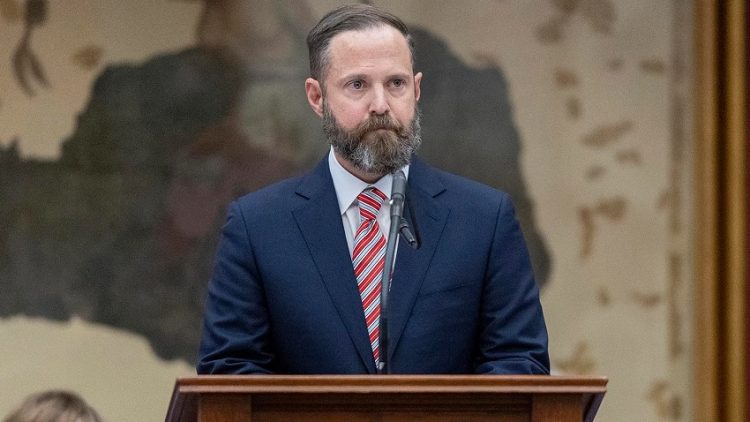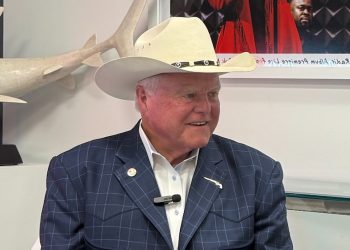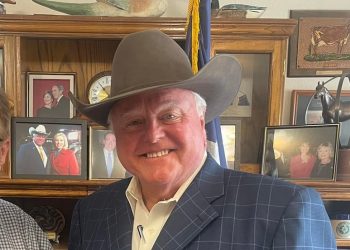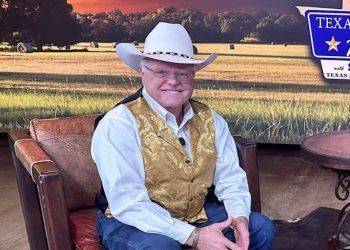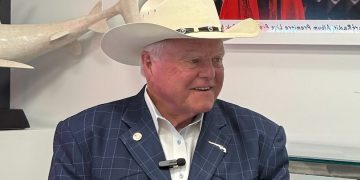Waco, TX – Rep. Dustin Burrows, R-Lubbock, was elected Speaker of the Texas House of Representatives on Tuesday, securing one of the most powerful positions in Texas state government. Burrows’ victory, which came with a vote of 85-55, marked the end of Rep. Dade Phelan’s tenure as speaker, but also highlighted the ongoing internal struggles within the Texas Republican Party.
Burrows, who succeeded Phelan, was able to secure a broad coalition of support, winning the vote with 36 Republicans and 49 Democrats backing him. While this coalition allowed Burrows to secure the speaker’s gavel, it also became a point of contention among the GOP’s right-wing faction. Many of these Republicans, who have sought to push the party further to the right, had hoped to oust the current leadership structure and viewed the speaker’s race as a prime opportunity to do so.
The right-wing faction, which gained ground in the most recent election cycle by picking up more than a dozen seats, had hoped for a more conservative leader who could better align with their policy goals. Burrows’ support from Democrats, however, raised concerns among his critics, who argue that the speaker should be chosen solely by a Republican majority. The Texas Republican Party has even promised to censure GOP members who voted for Burrows, with critics vowing to target those lawmakers in future primaries.
Despite these divisions, Burrows’ win signals continuity in Texas House leadership. His rise to power is viewed by many as a sign that the establishment Republicans, often aligned with Gov. Greg Abbott, will continue to hold sway in the state legislature. Burrows’ close ties to Phelan, his predecessor, suggest that the power structure in the House may remain largely unchanged, even as more hard-right Republicans push for a shift in direction.
As speaker, Burrows will wield significant influence over the legislative process. He will have the authority to appoint committee leaders, shape the flow of legislation, and guide the House’s agenda. Along with the governor and lieutenant governor, the speaker is part of the “Big Three,” the trio of leaders who hold considerable sway over the direction of state policy.
The role of speaker has the potential to either foster smooth legislative sessions or lead to gridlock, depending on the relationships between the House leadership and the governor. Last session, tensions between Phelan, Abbott, and Lt. Gov. Dan Patrick were palpable, resulting in four special legislative sessions as lawmakers failed to reach consensus on key issues like property tax cuts, immigration reform, and school vouchers.
Burrows, a staunch supporter of school vouchers, has signaled that he believes the political winds have shifted, and that there is now enough support within the House to pass a school voucher program. Abbott, who spent millions of his own campaign dollars to oust Republicans who did not support his school voucher agenda, is optimistic about the prospects for a voucher bill this session. With a significant number of pro-voucher Republicans now in the House, Abbott is pushing for swift action on the issue.
Despite Burrows’ alignment with Abbott on school choice, his election as speaker comes at a time of deepening divisions within the Republican Party. The question now is whether Burrows can successfully navigate these divisions and bring the GOP together, or whether the internal conflict will continue to undermine the party’s ability to govern effectively. The coming legislative session will be a key test of Burrows’ leadership and his ability to manage the competing factions within the Texas House.

